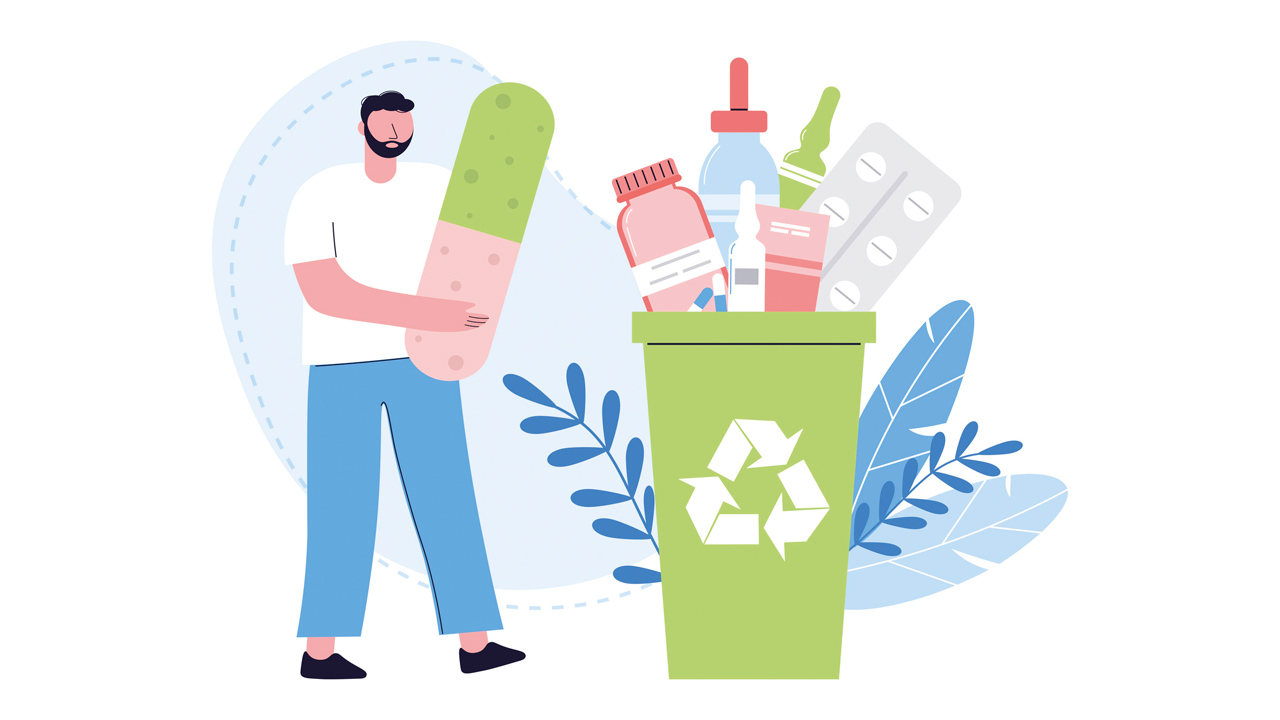In Opinion
Follow this topic
Bookmark
Record learning outcomes
Only someone who has been removed from communication with the rest of the world will be unaware of the existential crisis that global warming presents.
While it can be argued that some of the changes to our climate are due to the normal fluctuations that have occurred previously, it is indisputable that human behaviour has had a significant effect.
Everyone has a role to play in reducing the impact of modern life on our planet and pharmacy is not exempt from this. It is estimated that the NHS accounts for 4-5 per cent of the UK’s carbon footprint. Medicines account for about 25 per cent of the NHS carbon footprint, with inhalers alone accounting for 3 per cent. We have a responsibility to practise pharmacy in the most sustainable way possible in order to reduce our carbon footprint.
When I started working in pharmacy we dispensed medicines in glass bottles. Tablets were decanted from bulk containers and liquids from larger bottles, both glass and plastic. While the practice of accepting bottles back from patients had been abandoned, I remember seeing equipment for washing and drying returned bottles in both hospital and community settings.
Impossible to recycle
Our practice has evolved through decanting into plastic bottles to patient packs. But multiple boxes require multiple labels. Tablets are packed in plastic strips, sealed with foil – packaging that is almost impossible to recycle because it is a mixed material that cannot be easily separated.
When I collected my prescription recently I found that it had been dispensed through a hub and spoke system. My boxes of medication were sealed in a see-through plastic bag rather than the paper bag I have been used to.
There may be many arguments that support these changes over the years – clinical, patient safety, economic and efficiency – but it seems that no one has thought through their environmental impact. This is an area in which our negotiators should be influencing their health departments.
Ethical questions
Thinking about sustainability brings with it some big ethical questions. What are the relative priorities of cost efficiency and sustainability? If we are to develop pharmacy practice to be more sustainable, this will require investment.
“Medicines, in particular inhalers, account for about 25 per cent of the NHS carbon footprint”
If this investment is not made by governments, we should be transparent, demonstrate how sustainability can be improved and allow the politicians to choose the environment versus cost.
These are big decisions that are made above the heads of most pharmacy teams – but there is plenty that can be done within every pharmacy. While little actions might seem insignificant by themselves, when repeated in every pharmacy, every day, the outcome becomes significant. Here are some examples to think about:
- Part of the sustainability impact of medicines is in their production and distribution. So how well do patients use their medicines? If we improve how a patient adheres to their medication regimen, they may need a lower dose of that medicine or be successfully treated by fewer medicines and have a lower sustainability impact
- Inhalers have a significant environmental impact, both in terms of their plastic packaging and propulsion gases. Helping people to use their inhaler correctly will reduce the number of inhalers they use. Remind patients to dispose of their inhalers in an environmentally friendly way or get involved in an inhaler recycling scheme • Can your delivery service be provided with electric vehicles? There are examples of these services being provided by some pharmacies using electric bikes, which have an even lower carbon footprint.
These examples merely scratch the surface of the impact pharmacies can make to their carbon footprint. To find out more about sustainability in healthcare, go to sustainablehealthcare.org.uk and plan how you can have a greener pharmacy.
• Liam Stapleton is director of Metaphor Development Limited and an associate clinical lecturer at the University of Lincoln.

